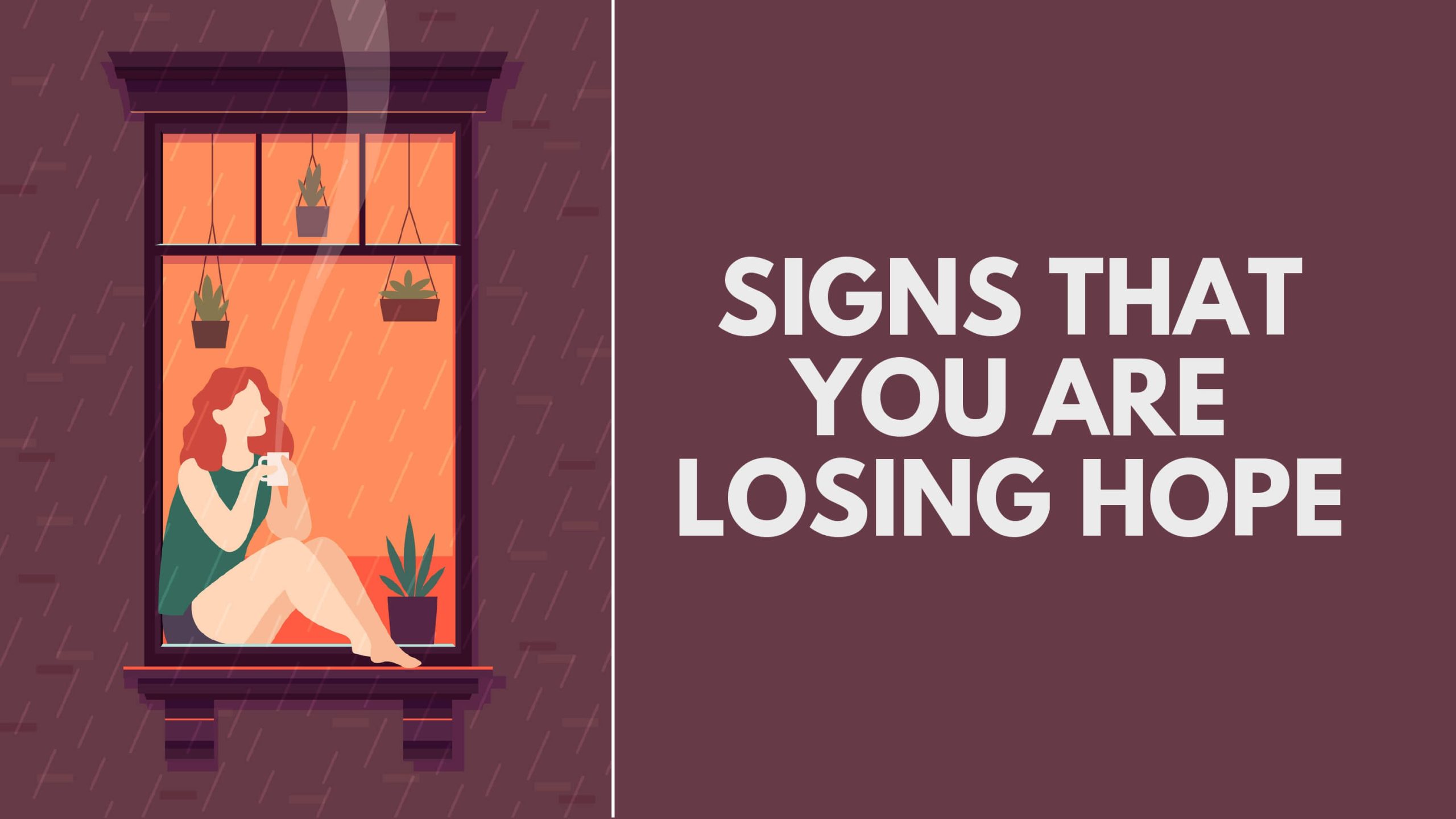Hope is a powerful thing. It can keep us going through the darkest times and the worst situations. But sometimes, it all just becomes too much. We start losing this powerful asset little by little when things get too much and need to take action if this happens. Let’s see what are the signs you may be losing hope.
You have constant anxiety
The first sign you are losing hope is that you are always worried, and that this anxiety doesn’t seem to go away or change. In particular, you worry about the future, your possibilities, and everything that could and might happen.
If you worry about the future all the time, you might have lost hope that things will get better. Optimism and hope are closely connected and help you get through tough times, because you remember that these times are just temporary and that everything can get better.
What can you do to address this aspect of hope? Cultivate optimism. Allow yourself to consider positive outcomes and neutral outcomes, even if your mind is full of catastrophic scenarios. Ask others to help you, if imagining positive outcomes is hard. Then, focus on those positive options. Remind yourself that whatever is happening, it’s just temporary.
Everything seems exciting at first and then becomes dull
Another sign that you are losing hope is that things seem to lose their shine very quickly. You might get very excited about something new. It feels like a fresh start that can change everything. But once you start this new activity or new task, it quickly makes you feel demotivated. It becomes part of the routine and suddenly you don’t care anymore. This can happen with new things, activities, and even relationships.
Losing hope means believing that our problems will be solved by something external but this doesn’t work. Instead, we feel disappointed by how this new thing feels when it becomes old. Our brain tends to favor novelty, but novelty, unfortunately, wears off after a while.
What can you do about it? Try to practice savoring and gratitude. Savoring includes being in the moment when you are with a person, doing a task, or engaging in your work. Try to be fully present and enjoy it as much as you can: focus on sensations, feelings, the positive and negative aspects of the experience. Gratitude involves explicitly recognizing the good things in life and helps maintain positive emotions even when something becomes routine.
You try to get distracted but can’t commit to a new habit
You might try to get distracted from the worry or the sense of hopelessness. You could be looking for new distractions, often in the form of less-than-healthy habits that are easily to maintain. But when you try to get into a healthy or fun habit, they don’t seem to last very long.
You might feel bored and like nothing engages you for long. It becomes hard to commit to developing better habits. What can you do about this? Consider focusing on your health, especially your mental health first. Don’t push yourself to do things you don’t want to do. Insead, focus on building the habits that are most likely to make a difference to your overall well-being: exercise, good nutrition, and especially sleep. These are most likely to improve how you feel and restore hope to you.
You stop fulfilling your responsibilities
A sign of losing hope is that you stop doing the things you have to do. You can’t keep up or lack the motivation to engage in your work, keep your house, work on relationships, and so on. It might all feel very pointless, so you stop doing this.
It’s not easy to feel so hopeless that basic tasks begin to feel too much. If you have gotten to this stage, it might be a good idea to look for help. But you can also focus on the basics and inspire yourself through new experiences, connecting with the people you care about, and other things that can bring back hope into your life.
You go for immediate rewards
Believing in the future means making good decisions. Losing hope might translate into not doing much for your future self and instead putting more time, money, and effort into the things that can make you feel good now, like comfort food, sweets, junk television, video games, and others. It’s not that those things are bad, but that they often get in the way of other goals.
Try to invest more time and effort into decisions that might not be easy but can provide a solid path to the future. It can remind you of the good things you are striving for and help you feel capable of achieving these goals you have set for yourself.


